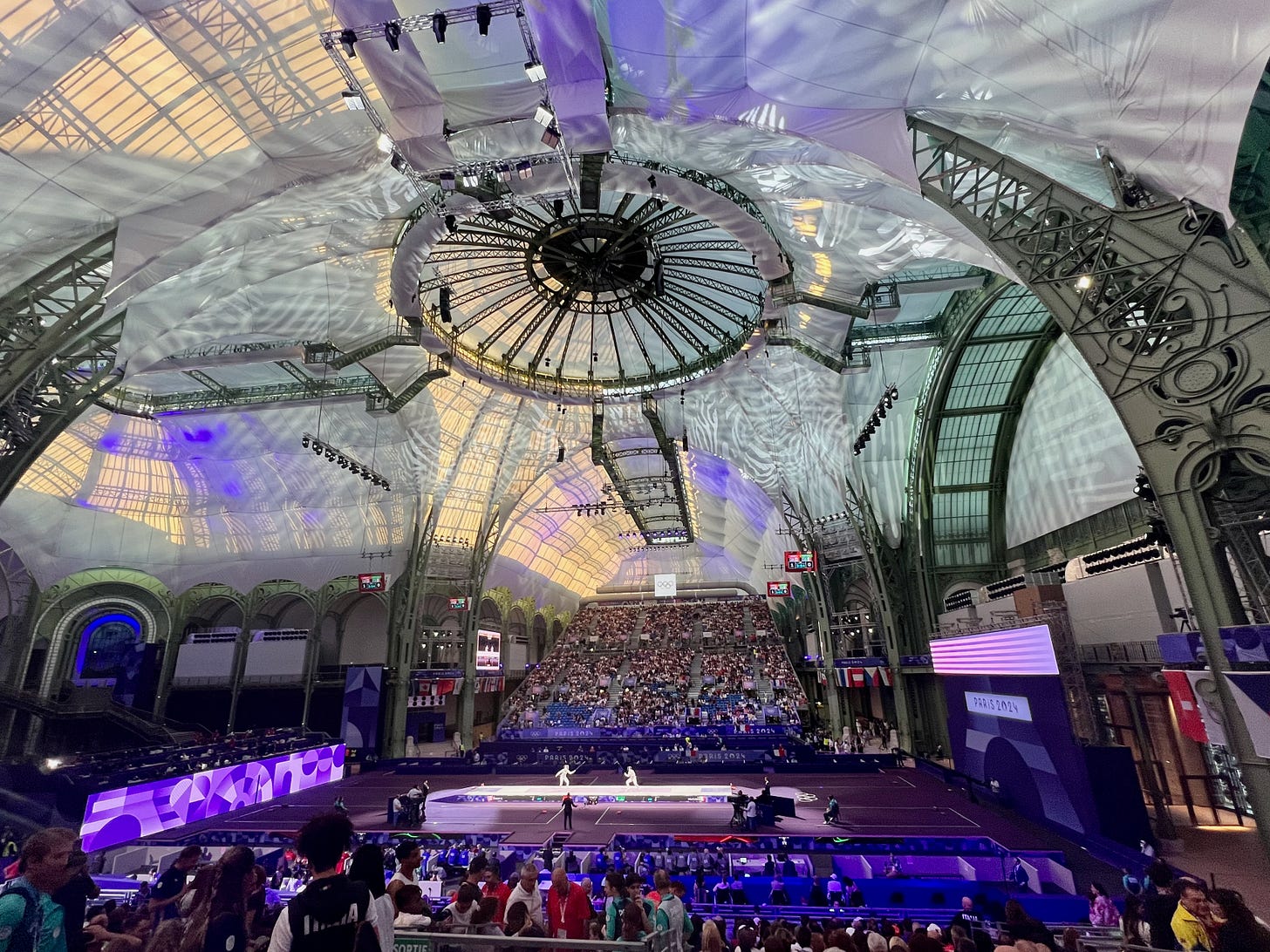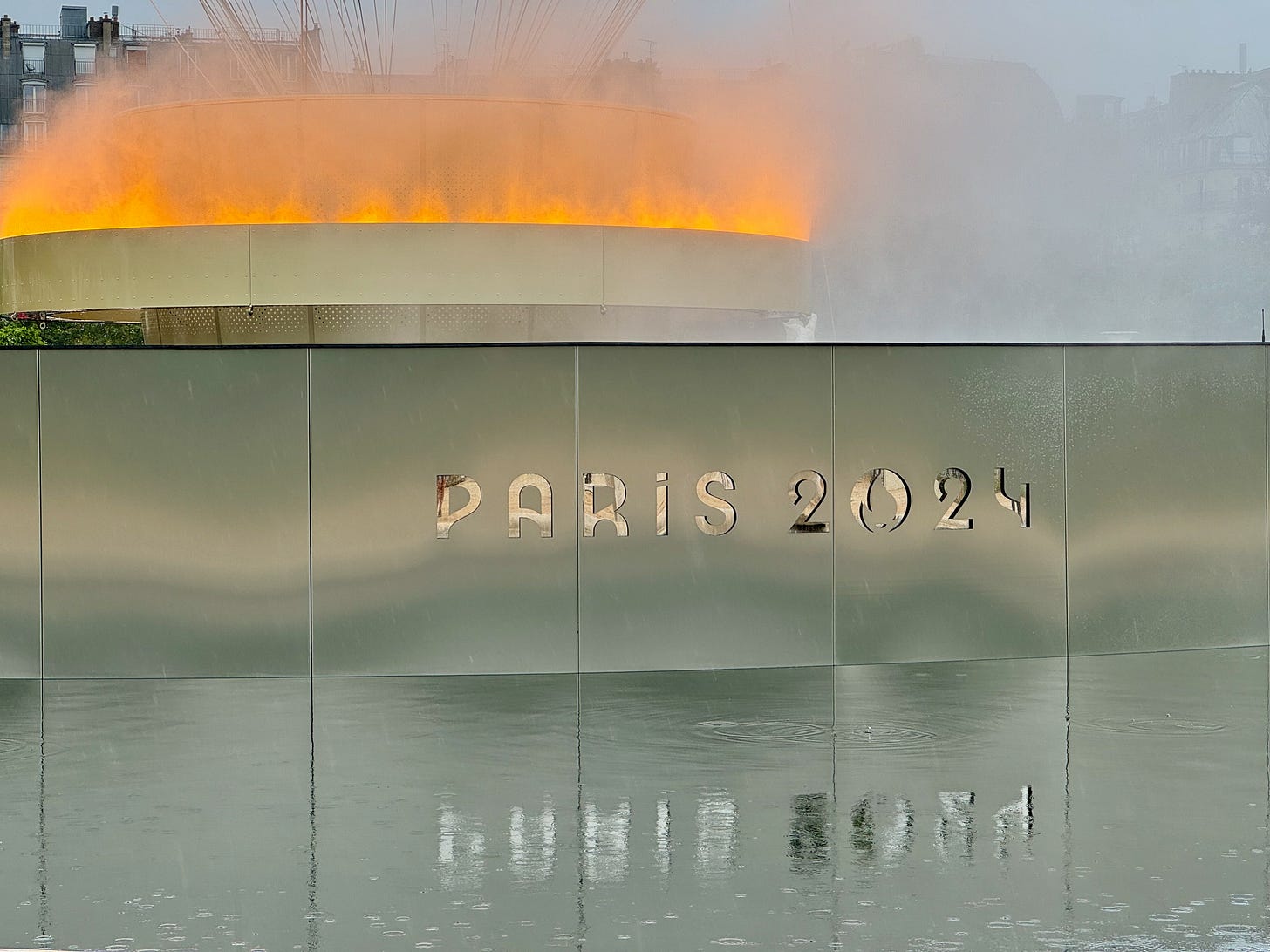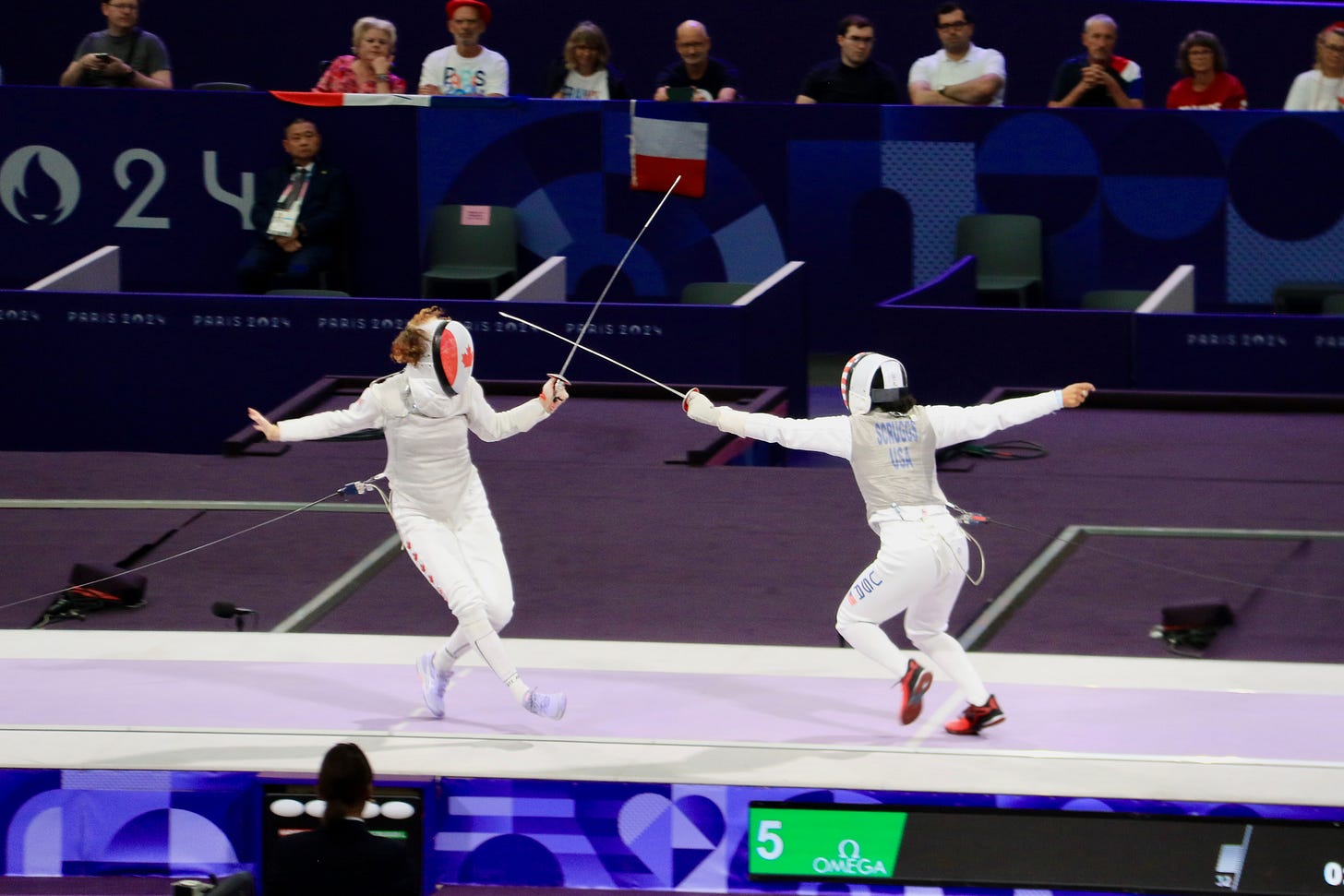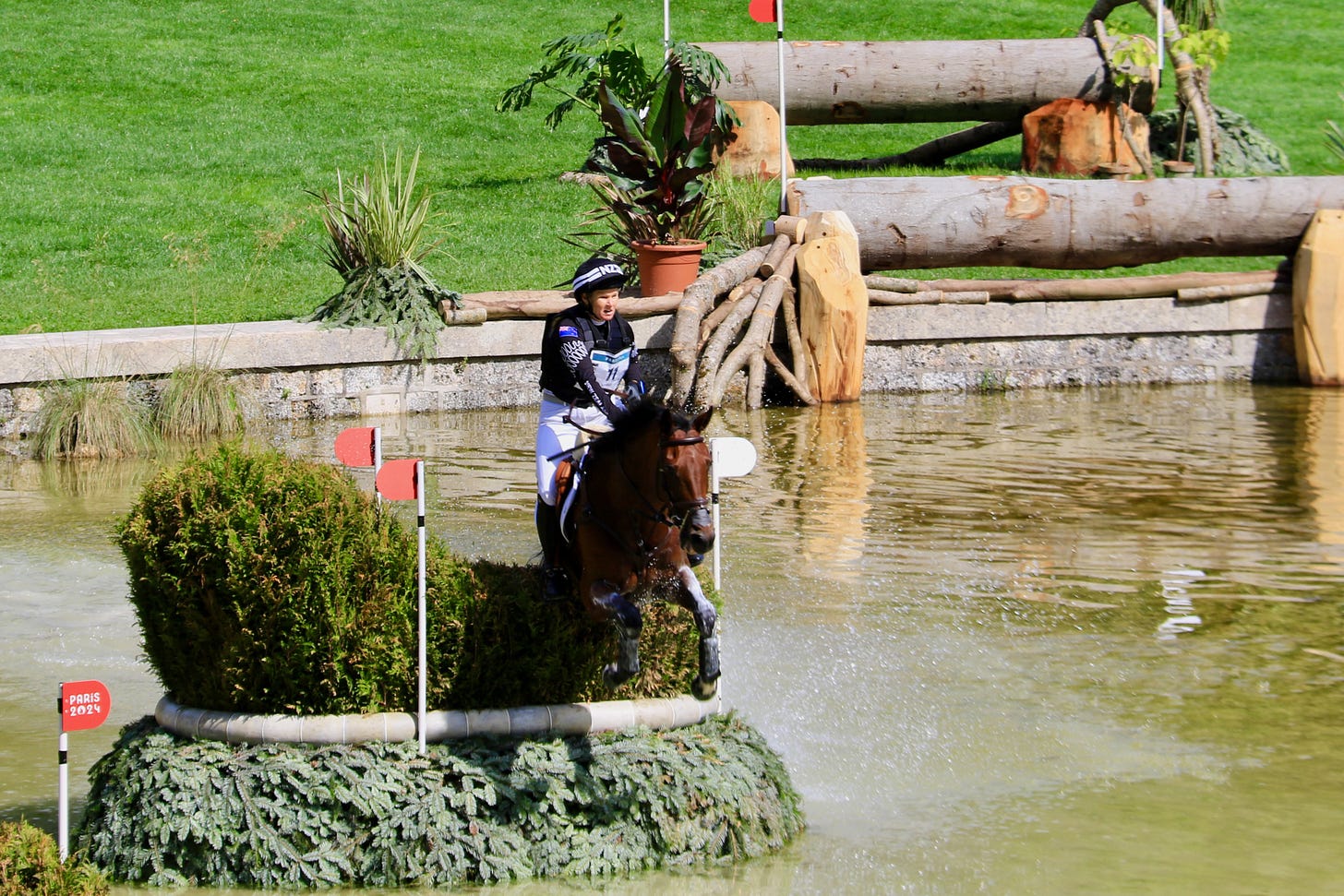Are fourth placed Olympians really losers?
Top Three @ The Paris 2024 Olympics
30th July 2024 - Part 4
This, appropriately, is the fourth instalment in a series of indeterminate length:
Are fourth placed Olympians really losers?
More coming soon!
🥇🥈🥉4️⃣
One of the interesting things about the Olympic Games is that it’s not just the winners who take the prizes: second place wins a silver medal, and third place wins a bronze. But fourth place gets broken dreams. In events where the difference is often tenths or even hundredths of a second, that cut off can be brutal.
According to research, the silver medallist is typically the least happy of the three medallists. One possible explanation for this is that silver medallists compare themselves to the gold medal winner and wonder what could have been, whereas bronze medallists compare themselves to the lower place-getters and are happy to have a medal at all.
Success is relative, remember. To be considered successful you only have to do things that most people don't. When your goal is to win the gold medal, doing the things that everybody on the planet except for just one other person doesn't is … quite annoying apparently.
New Zealanders like to point to the medals we win and boast about punching above our weight. But much less well known is how we also punch above our weight at not winning medals.
At the Rio 2016 Olympics athletes from New Zealand won medals in 18 events. There were another nine fourth place performances. That was more than any other country, on a per capita basis! We didn’t quite match that in Tokyo 2020, with only three fourth place performances. Perhaps this explains the record number of medals won?
Spare a thought for athletes from Hungary. In Tokyo they won 20 medals, just like New Zealand, but also finished fourth in 14 other events.
The level of competition for Olympic medals is extreme. It’s hard to grasp from a distance. For example, Erika Fairweather holds the New Zealand 400m freestyle record for women, but to win a medal on Sunday night local time she needed to beat three world record holders. She finished fourth. There is no disgrace in that result, but sadly also no medal.
At least in swimming it’s a straight race for the medals. Many sports have to deal with the dilemma of separating third and fourth place. In some cases, like rugby sevens, there is a play-off match, with only the winner taking a medal. In some fighting sports, like boxing and judo, both of the losing semi-finalists win a bronze. Neither of those solutions feel optimal to me.
On the final day of competition in Tokyo 2020 the Hungarian water polo team faced a third/fouth play-off. You could understand why they might be feeling the weight of history. In the end they won and took home the bronze medal. That result meant that Hungary finished sixth on the fourth-place medal table. Otherwise they would have finished … fourth!
Here is the “leather” medal table after three days of competition here in Paris 2024:
We’re in the hunt! But our old nemesis Hungary are not far behind. Estonia, with their fourth in the fencing the other night lead the race.
We’ll watch this table with interest, obviously.
Fourth place: all the fun of taking part,
none of the hassle of hanging around to collect a medal
– Jack Dee
En garde
I’m starting to feel nervous about our pacing strategy here in Paris 2024.
It’s been a hectic start! We’ve squeezed in a couple of days of rugby sevens, archery, skateboarding and handball. We’ve spent two days at the amazing equestrian eventing venue at the Palace of Versailles, and were up early this morning for the aborted triathlon.1 But the highlight so far was the evening session of the fencing at the spectacular Le Grand Palais, right in the middle of town. This is one of the original Olympic sports - one of only five sports to be contested at every Olympic Games, and also one that gets almost no coverage or attention at all in New Zealand. But it’s big news in France, with local athletes already picking up a gold and three silver medals in the six completed events.
Inside the recently refurbished venue the atmosphere is electric. After they are introduced the two competitors descend to the “piste” down the grand staircase. The scoring system, with lights on the floor immediately showing when a touch is recorded, makes the action easy to follow even for complete noobs like us (although we did have to fall back on wikipedia to explain the difference between a white and yellow card). The noise from the 9,000 capacity crowd is overwhelming, with a DJ ensuring that energy levels are high. But once the referee calls “en garde” there is complete silence, so you can hear the clash of the épeé or foils.
If you have access to Sky TV over the next few days I strongly encourage you to get out of your sporting comfort zone, get up early and check out some of the sports you might otherwise never watch. That’s what the Olympics are all about.
The long dry summer
Distance makes everything seem small, as they say. It’s depressing to see the media headlines from New Zealand agonising about the lack of medals:
NZ looks to Black Ferns to break medal drought, Radio NZ
Have your say: Are you disappointed by NZ’s lack of Olympic medals?, Stuff
New Zealand’s best chances to end medal drought in Paris, NZ Herald
Don’t panic New Zealand. Our insecurity is showing!
So far New Zealand athletes have competed in 13 of the 46 completed events in the first three days of competition. We’ve had a fourth, a fifth, two sixths, two sevenths and four eighths (that’s 10 Olympic Diplomas already). One medal would put us just outside the Top 10 on the overall per capita table, and straight into second place behind Hong Kong, if it’s a gold.
Here are the per capita medal tables after day three:
Tonight we’ll be back at Stade de France to hopefully celebrate a medal of one colour or another at the women’s sevens. Or a fourth. C’est la vie!
Perhaps this poo protest worked? #JeChieDansLaSeine







